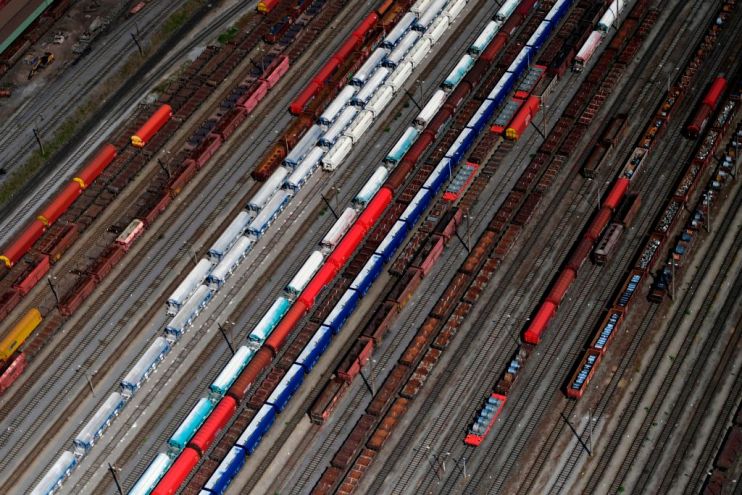Britain must stick up for trade

The global economy has shut down and as a consequence, so has global trade. Around 80% of the world’s trade is carried by sea and since the beginning of the year there were over 430 so-called “blank sailings”, where shipping lines cancel their journey. The number is expected to increase into May and for comparison, it’s now nearly twice the level that it was during the financial crisis over a shorter period of time.
Against this backdrop, we shouldn’t expect either the Q1 GDP figures or the UK export figures to be anything other than catastrophic. Based on simple momentum, it is reasonable to expect exports to have fallen back by as much as one fifth in Q1.
Read more: City A.M. launches the ‘Save our SMEs’ campaign
The UK faces challenges that are the same as those for the whole world: how to exit from lockdown in a way that refloats the economy without creating a wave of further infections that have yet greater impact on economic growth. These are well-documented challenges that will hinge on the government’s willingness to retain its support to employment and businesses, its financial commitment to rebuilding the economy sustainably in terms of social, environmental and transport infrastructure as well as its capacity, or indeed willingness, to continue to borrow at the current rate.
But it’s fair to say that the UK also faces some unique pressures of its very own. It is an open economy and highly dependent on trade. During the financial crisis our exports fell back by 5% more than was the case for the rest of the world; with a projected collapse of up to 32% in world trade. We should brace ourselves for the worst. Forecasts suggest that exports will pick up towards the end of 2020 and start to grow significantly into 2021.
But this assumes, the UK’s supply chain relationships and the costs of trade remain the same. This will not be the case unless a quick deal on trade can be reached with the EU.
Trade will not be the same after the Covid-19 pandemic. We are already seeing greater distribution of inventories around the world to reduce reliance on single suppliers in a “just-in-time” inventory system. The role of China as the world’s supplier will change as a result – there will be more sources of intermediate manufactured goods around the world so that supply chains do not grind to a halt, but while its role may change, its influence economically and technologically will remain.
This is one of the reasons why we cannot expect to see a reduction in the trade tensions between the US and China, if anything, trade will become more of a strategic game built on the quest for control over flows of finance and flows of data between the two. The World Trade Organisation will become weaker.
Can the UK survive all this? It can, if it recognises that its supply chains will change. The role of manufacturing in the UK economy may be less significant. Its allies, including the US and the EU, are engaged in the same, existential, strategic competition with China alongside a national battle for survival. The consequence could be that the UK may slip to the back of the queue for no other reason than that there are other strategic priorities. A lot will depend on how others behave.
That is the essence of where the UK is now: in a strategic competition between blocs of interest – Russian, Chinese, American and European – alongside weakening international governance. The behaviours of others matter because they will affect our plans, not just in terms of our economy but also in terms of our security. British exceptionalism in this landscape is not sustainable and we need to think, and plan, for our post-Covid 19 place in the world against this backdrop of increased nationalism and shifting spheres of influence.
Covid-19 should demonstrate how interdependent the world is; we should not be frightened now of re-affirming our commitment to multilateralism in trade and foreign policy if we are to keep our seat at the table.